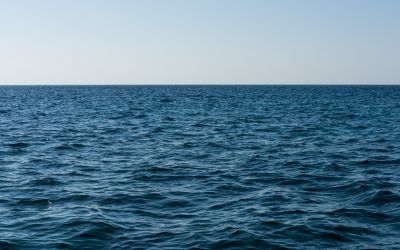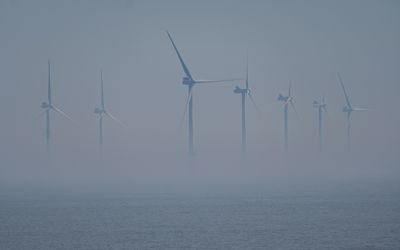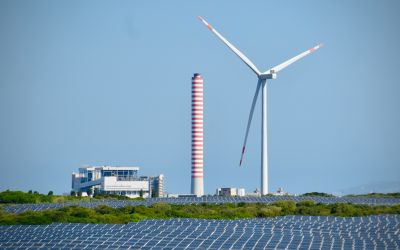UN climate talks split over deforestation funds
Poorer countries, blamed for producing up to 20 percent of the greenhouse gases caused by human activities, a stalemate occurred as the 160-nation U.N. climate conference in Ghana split on Friday over ways to pay poor countries to slow deforestation.
Poorer countries, blamed for producing up to 20 percent of the greenhouse gases caused by human activities, a stalemate occurred as the 160-nation U.N. climate conference in Ghana split on Friday over ways to pay poor countries to slow deforestation.
Suggestions were made for raising billions of dollars in incentives that would allow trading in the carbon dioxide locked up in trees, increased aid from rich nations and levies on airline tickets or on international shipping.
"It's important that we get to grips with this," Yvo de Boer, head of the U.N. Climate Change Secretariat, told Reuters during the Aug. 21-27 meeting of 1,500 delegates.
"For many developing countries, avoiding deforestation is pretty much the only way they can engage in the climate change regime and reap some benefits," he said of schemes meant to slow logging and burning of forests to clear land for farming.
A U.N. climate conference in Bali last year agreed to explore ways to pay people in the developing world to leave forests standing -- trees soak up carbon dioxide as they grow and release it when they rot or are burned.
The Accra meeting is working on details as part of a plan to agree a sweeping new U.N. climate treaty by the end of 2009 to avert heatwaves, droughts, more powerful storms, risks of more disease and rising sea levels.
"We think this is particularly relevant to Africa. We want this next climate regime to benefit Africa," said Brice Lalonde of France, speaking on behalf of the European Union.
France holds the rotating EU presidency. He said the EU was willing to consider extra aid or to work out new forms of carbon trading.
The European parliament voted this year to auction 15 percent of emissions from aviation and use proceeds for measures such as slowing deforestation.
"NEW DAWN"
"We shall perhaps see a new dawn for tropical forests," Lalonde said.
The Pacific island of Tuvalu, threatened by rising seas, said a levy of $20 a tonne on emissions of carbon dioxide from all international aviation and maritime transport would generate revenues of about $24 billion a year.
"A levy of that level is about 0.6 percent of an airfare price," said Ian Fry of Tuvalu. Slowing economic growth in many nations, along with high food and fuel prices, makes it harder to find cash for forest protection.
Friends of the Earth environmental group said there were risks that an inflow of funds would push up the value of forests and lead to a land grab by foreign investors that could threaten the rights of indigenous peoples on the land.
But some developing nations said partnerships with business were inevitable.
"This is about rural communities and indigenous peoples. This is about business. We have got to bring communities and the private sector together," said Kevin Conrad of Papua New Guinea, speaking on behalf of about 20 tropical nations.
Sustainable UN on the move towards climate neutrality
The Sustainable UN facility, together with the UN Environmental Management Group, has in the past two weeks conducted two seminars in Geneva and New York on the topic of how to implement the UN Climate Neutral Strategy.
This strategy, adopted by the UN Chief Executive Board in October 2007, commits all UN organisations, funds and programmes to move towards climate neutrality by calculating their carbon footprint, by reducing emissions, and by preparing for a decision on purchasing offsets to compensate for remaining emissions.
The seminars in Geneva and New York were attended by about 100 UN staff from 40 different organisations.
It was encouraging to see the level of engagement from participants, which resulted in lively discussions on almost all topics, ranging from how to calculate emissions, to cultural change, to how to budget for offsets, to the role of the procurement system as a barrier or vehicle for emission reduction.
Several UN organizations are in fact well underway to establish their Greenhouse gas inventories, in some cases also to reduce emissions, and in a few cases even to go beyond that by preparing to adopt environmental management systems.
These are trends that were unheard of only a few years back and now, many UN organizations are gearing up to get first to the goal of demonstrating significant progress towards climate neutrality and sustainability.
This is very encouraging, even though most of us still are only at the beginning of our efforts. An issue of particular interest is how to reduce emission from travel.
Travel of staff and meeting participants constitutes one of the largest emission sources for many organisations, sometimes as high as 95%.
Opportunities for reducing these emissions as discussed at the seminars include:- Avoid unnecessary missions by providing incentives for staff to think twice before issuing a travel request.
- Make it easier to travel in more sustainable ways: make sure that the travel agent can offer train tickets, as well as air tickets.- Fly in economy instead of business class, or lease a more fuel efficient car.
- Make sure that the alternatives to travel – typically different forms of electronic communication – are of high standard and easy to use. Today, many UN organizations are discouraging staff from using personalized video links, even though these are far easier and more reliable than traditional video conferencing.
- Include information about the "climate cost" on each travel quoted and each ticket issued. Awareness is all!!
- Make it fun to use the electronic communication tools – organise meetings in virtual worlds.- Bundle missions together, allow staff to stay on the road in between missions if suitable, use local staff, and put a limit to the number of staff traveling to the same meeting.
- Or just use the no-nonsense approach: take an executive decision to reduce the number of missions. This has been done for budget reasons and can also be done for climate reasons.
Clearly there is no lack of good ideas. Our challenge is to implement them.
The general perception is that there is in fact very little resistance to this kind of interventions.
The barriers consist of business-as-usual inertia – simply a certain unwillingness to test a new ways of doing old things. And what kind of excuse is that?
Source: Reuters






